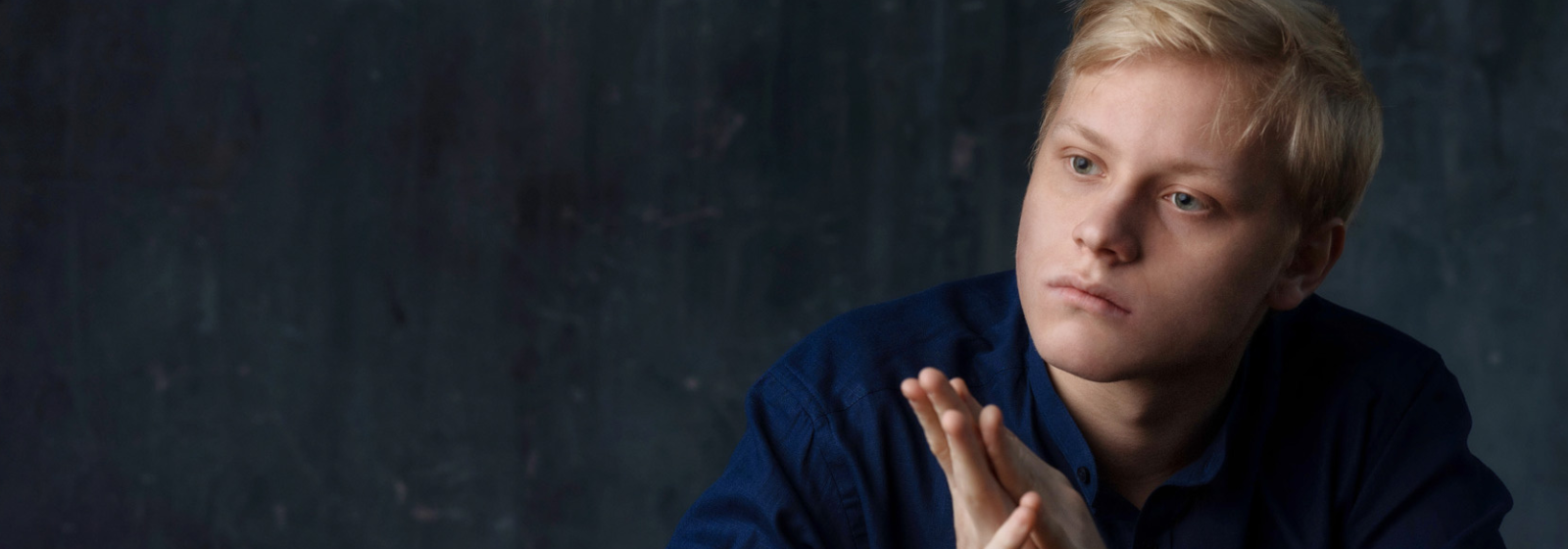
Budapest
THE YOUNG PIANO VIRTUOSO
Kocsis/1
SERGEI PROKOFIEV: Romeo and Juliet, suites Nos. 1 and 2 – excerpts, op. 64
FRANZ LISZT: Totentanz – fantasy for piano and orchestra
***
FRÉDÉRIC CHOPIN: Andante spianato et Grande Polonaise brillante for piano and orchestra, op. 22
BÉLA BARTÓK: The Miraculous Mandarin – suite, Sz. 73, BB 82
Alexander Malofeev piano
Hungarian National Philharmonic Orchestra
Conductor: Alevtina Ioffe
Prokofiev, Liszt, Chopin and Bartók: although it may seem surprising to see these four composers grouped together, if we reveal that the programme for this concert by the Hungarian National Philharmonic Orchestra consists of two 19th-century concerto-type works bookended by the music written for two 20th-century dance dramas, it becomes clear that there is nevertheless an organic logic to it. It is always exciting to get an opportunity to meet a new artist: the two we will be meeting at this concert are a prodigiously talented young Russian piano virtuoso and a Russian conductor representing the – thankfully expanding – camp of female members of her profession.
Though Prokofiev’s Romeo and Juliet (1935) is a ballet and Bartók’s one-act dance drama The Miraculous Mandarin (1918-1924) is a pantomime, despite the differences in how the genres are defined, both works deal with all-consuming passion, and in both stories, this passion proves fatal. It will be a thrill to hear excerpts from both Prokofiev’s ballet and the suite created from Bartók’s pantomime on the same evening. Also promising excitement are the two absolutely Romantic works framed by the 20th-century pieces: Liszt’s Totentanz and Chopin’s coupled pair of movements Andante spianato et Grande polonaise brillante. Born only a year apart, the two composers were united in friendship as well – and yet, these two pieces of music are so different! In contrast to the demonic darkness of Totentanz, the gestures employed in the Andante spianato et Grande polonaise brillante are dominated by a noble bearing and an elegant sense of poetry. Still only 22 years old, Russian soloist Alexander Malofeev was only 13 when he won the gold medal at the Tchaikovsky Competition for Young Musicians. His compatriot, the Moscow-born maestra Alevtina Ioffe, began her international career in 2018 and has since made triumphant debuts in Berlin, Munich, Stuttgart, Weimar, Paris and Seattle.
The five concerts of the Hungarian National Philharmonic’s Kocsis season ticket offer an extraordinary variety of styles, genres, and performers. Generating the excitement in the first night’s programme of Prokofiev, Liszt, Chopin and Bartók will be two exceptional Russian artists: the young piano virtuoso Alexander Malofeev and, expanding the thankfully growing contingent of female conductors, Maestra Alevtina Ioffe. Next up, taking the podium this time as conductor will be the legendary oboist and composer Heinz Holliger, as he pays tribute to both his former mentor, Sándor Veress, and Veress’s own teacher, Bartók, by interpreting works of theirs – with the Russian Ilya Gringolts serving as the violin virtuoso for the evening. Joined by some excellent singers, György Vashegyi will revive the late 18th-century Parisian tradition of church concerts, performing both Pergolesi’s and Haydn’s Stabat Maters one after the other. Carlo Montanaro and Barnabás Kelemen’s programme evoking the magic of Rome will include, in addition to Respighi, a Liszt piano piece transcribed by Zoltán Kocsis and Beethoven’s Violin Concerto. The subscription concludes by captivating listeners with the passions Berlioz brought to his Symphonie fantastique, as relayed by that most experienced of interpreters, Ken-Ichiro Kobayashi.

